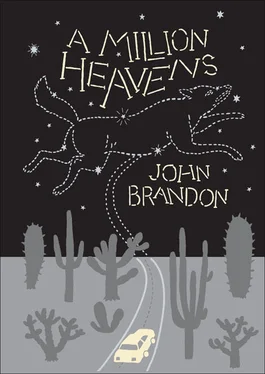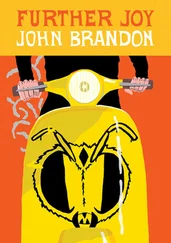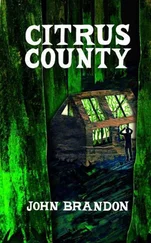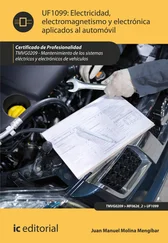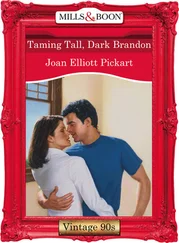He filled the closet with bottles of water and cans of ginger ale, fruit roll-ups, bags of popcorn. He dragged the mattress outside and then the box spring and when he went to move the bed frame he saw something underneath, on the floor. It was one of those magnetic travel chess sets. He opened it and it had all the pieces, all thirty-two. He knew what he’d do. He’d teach his sister-in-law to play chess, whether she wanted to or not. Most of their life together was in the past, but not all of it. Some of it was waiting for them, time waiting to be spent. They were family. They would play chess. Once she knew what she was doing, Mayor Cabrera would get a regular set, carved of wood, with pieces substantial enough to work around in your palm as you parsed out your next move.
Mayor Cabrera had once gone to Sun Studios in Memphis with his wife, and it hadn’t looked much better than this hotel room now did. They had a control room at Sun, but other than that it was about the same as this place. Mayor Cabrera began gathering his supplies and tidying up, the extra tiles and his beer cans and such, and was struck with a pang of pure fear. He couldn’t stall about Dana anymore. All the amends were in progress. There was nothing standing in his way now. He was a brother-in-law again and was becoming an uncle again and he had to find out what he was going to be to Dana. He deserved her as much as he ever would and she’d either want him or she wouldn’t. Nothing could make him pathetic now. He felt able to weather a hardship with dignity.
The wolf scrambled up the loose rocks and out of the gully. He had returned to the house of the older woman and the girl, the house where he’d once heard the songs. The wolf stopped at the edge of the property and listened hard, as if trying to hear the drifting of clouds. The temperature was dropping. The wolf could feel it in his snout and behind his eyes. There was no space between the wolf and the sheer cliff of his ill mind. His saliva tasted like paper and his paws were stones.
A hard twig was barbed into the wolf’s side and he yanked it and then paced toward the chickens. The wolf pressed his muzzle to the fence and the chickens did not hustle about. They kept going about their pointless business. They weren’t afraid. They felt nothing for the wolf, considered him harmless. The chickens were skinny and their beaks and feet were the same color as their feathers. They stood with heads high, almost haughty. They were waiting for the next idiot scuffle to break out, for seed to be scattered. When death arrived, as it was about to, they would greedily scuffle over that too.
The isolated homesteads. The outposts of the outposts. What he’d done to the chickens had provided the wolf no solace, nor did he feel regret. The wolf had made the chickens thin air, had given them unprofaned existence, and they’d given him back nothing. He’d gained no knowledge. If there existed a more potent apprehension it could be found only in a human, not in a human’s lesser companion. The wolf now peered out from a thicket of soft weeds, spying on a mother and a baby. The house was a box of sticks but the porch was grand. The wolf couldn’t see the baby but it was there, wrapped down in the cradle. The mother made tender, distracted clicking sounds in her cheek. It was dawn, the world yellowing. The mother rose and stepped inside the house without shutting the front door. She could see the cradle from where she stood, the wolf knew. The mother was recovering from injury and the baby was a baby.
The wolf broke from the thicket, crossing the dirt road and halting at the mailbox. He couldn’t see the baby but now he could smell it, fatty and scrubbed. Like he would’ve in his old life, the wolf washed the base of the mailbox with his urine. If he took another step closer to the baby he wouldn’t be able to stop himself. Before he knew it he would have the soft infant in his hard jaws, its limbs flopping as the wolf galloped into the wilderness. He kept his haunch against the post. He wanted the mother to come back out to the porch so he might be able to flee but she was brewing tea. The wolf smelled cut pine and tobacco and the knees and elbows of the baby. He couldn’t back away and tried not to move an inch closer. The wolf wondered if he was mad enough now, devoid enough of instinct, that he could be blamed for his actions. Innocence was a silly human notion, but guilt had been around always.
The wolf realized his teeth were bared. He had never in his life tasted human blood. The wolf tried to imagine where he would take the baby, what would happen to it since he was not going to eat it, and of course its unavoidable end was to be ripped asunder by buzzards whose profession was hunger and who didn’t distinguish a human baby from a roadside possum. The wolf put his belly to the ground. He was trying to outrace fate but he was going in circles. He had known it all before and forgotten it all before. He could remember being healthy and somehow could remember being even more ill. The baby would not help nor hurt the wolf. The baby was beside the point. The reason to take it was the same as to not take it. The wolf was playing games — taking pets, subsisting on flying insects, waiting around for fixes of music. Making vows. It was not the wolf’s job to protect anything. The wolf was afraid he might push the mailbox over. The mother was still inside, feeling secure on a whim as humans always did, and she was right this time; the wolf was not going to harm the baby. The wolf wanted to believe that every last hope for peace had not expired in him. He pushed himself back from the mailbox as if dragging a loaded sled and then raced, stumbling, into the borderless abyss that had to be his true home.
Whether she wanted coffee or not, each morning she put on a kettle of water. As she ran water in the kettle she got to look out the back kitchen window and see her chickens getting about their business, and early in the morning was the only time she enjoyed them anymore. She got to stand near the warming stove. The kettle was something to wait on, a ritual. And when the kettle started whimpering she would wait still, until the sound grew urgent.
This morning she pushed close to the window and saw no movement, heard no impatient clucking. The ground outside was blanketed white. The rest of the desert was correct, but in Cecelia’s mother’s fenced enclosure the ground was a downy carpet. The feathers were spread evenly, as if a giant had fixed up a place to sleep for the night. Cecelia’s mother pulled the door open but she could only make it down the first step. She didn’t want to tread on the feathers. She was marooned on the steps. It was like looking at art, or something more important than art.
By now everyone knew the wolf wasn’t killing out of hunger. He was killing to settle a score Cecelia’s mother could not fathom. Cecelia’s mother had begun to believe that the wolf had passed her over, like in the Bible when all those people painted their doors with blood. Cecelia’s mother knew that the chickens had been working against her. She had secretly begun to hate them. If her chickens were tender for some ancient, animal debt, she wasn’t going to begrudge the transaction. Some chickens became nuggets; hers had been raised to a higher calling. She wanted to laugh at these thoughts, standing alone on the steps, because they were stark and even silly, but she had no laughter to give.
Something was wrong with Cecelia’s mother, but at least she knew it and at least she was working her way out. She wasn’t crazy. She missed the chickens. She’d let go of them weeks ago in her heart. She hadn’t tossed and turned last night, which was unusual. She’d had dreams, and they’d been empty. Her dreams had been hollow eggs. She hadn’t heard a ruckus out back of the house and she hadn’t heard Cecelia leave this morning. She remembered the day she’d bought the chickens, one of the last times she’d walked to Lofte’s little downtown to go grocery shopping. She’d had her backpack with her, and was planning to grill steaks and panfry something green. On her way she’d passed the little Redding property and had not felt like cooking but had definitely felt lonely and the chickens were in the front pen for ten dollars each and Cecelia’s mother had made a bad decision because she had the right to. She’d saved the chickens’ lives. The Reddings were getting out of the hobby and Cecelia’s mother got in. She could have company like everyone else. She could have something going on. She could do something Cecelia wouldn’t approve of. She’d come home with live chickens she meant to keep alive rather than dead steaks she meant to put over a fire. She’d never had a pet in her life, probably another reason she’d bought them. It wasn’t nuts to have some chickens. It was only nuts to have chickens if you were nuts anyway, without the chickens.
Читать дальше
